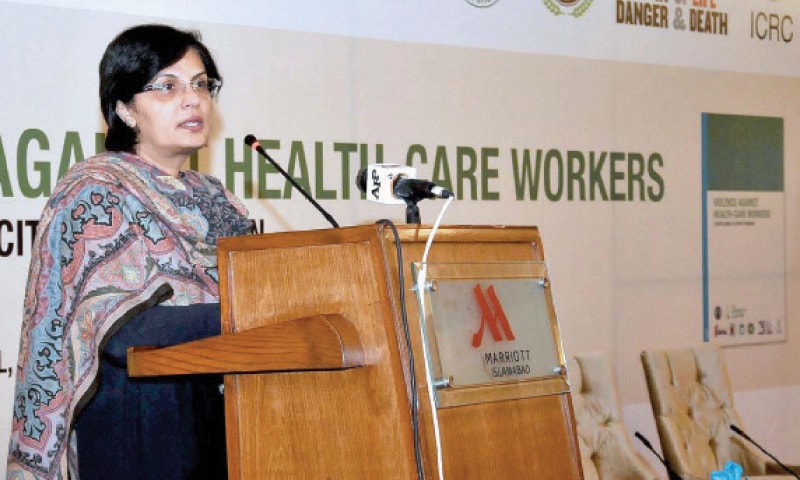ISLAMABAD: More than one-third of healthcare providers experienced some form of violence during the last six months, according to a survey.
International Committee of the Red Cross (ICRC) in collaboration with local research institutes and partners launched the national survey on violence against healthcare workers.
The survey compiled across 16 cities of Pakistan covered 8,579 healthcare workers in Khyber Pakhtunkhwa, Sindh, Punjab and Islamabad to determine the extent, causes and types of violence that were experienced by healthcare staff.
The survey also examined the existing policies to protect healthcare workers in different institutions.
Speaking at a ceremony, Special Assistant to Prime Minister Dr Sania Nishtar underlined the consequences of violence and its adverse effects on the delivery of healthcare.
“It is important that we as healthcare practitioners and attendants work on changing behaviours towards violence against healthcare and adopt specific multidisciplinary strategies to protect healthcare,” she observed.
Head of Delegation ICRC Pakistan Dragana Kojic explained the objectives of the ‘Health Care in Danger (HCiD) Initiative’, a global initiative to improve access to healthcare and make its delivery safer in conflict and other emergencies.
“When a hospital is attacked, or a healthcare worker is threatened, the result is that a mother and daughter in need of immediate care may not get it. It also means that a healthcare worker may be psychologically traumatised while in the line of duty,” she remarked.
The study highlighted the need to train healthcare workers in skills of emergency communication to deescalate violence, development of policies on protection of healthcare including zero tolerance for violence against healthcare workers, public awareness campaigns and better community engagement.
The study was conducted in collaboration with Apnaa Institute of Public Health, Jinnah Postgraduate Medical Centre, Institute of Public Health, Khyber Medical University, College of Medicine and Dentistry, University of Lahore, Isra University, Islamabad, and Faisalabad Medical University.
Head of the HCiD initiative in Pakistan Dr Mirwais Khan said this was the third study that had been conducted on the magnitude and patterns of violence against healthcare in Pakistan.”
“The more we study this phenomenon, the more the data informs us that we need to address systemic gaps and strengthen trust in the healthcare system and the healthcare providers to reduce such instances.”
The ICRC said it has been working to address the issue of violence against medical personnel and facilities in Pakistan by promoting evidence-based initiatives in collaboration with the government, Pakistan Red Crescent Society, health departments, leading universities and public hospitals.
This year, the ICRC also launched Bharosa Karein, a campaign on increasing respect for healthcare workers.
Published in Dawn, December 7th, 2019















































Dear visitor, the comments section is undergoing an overhaul and will return soon.